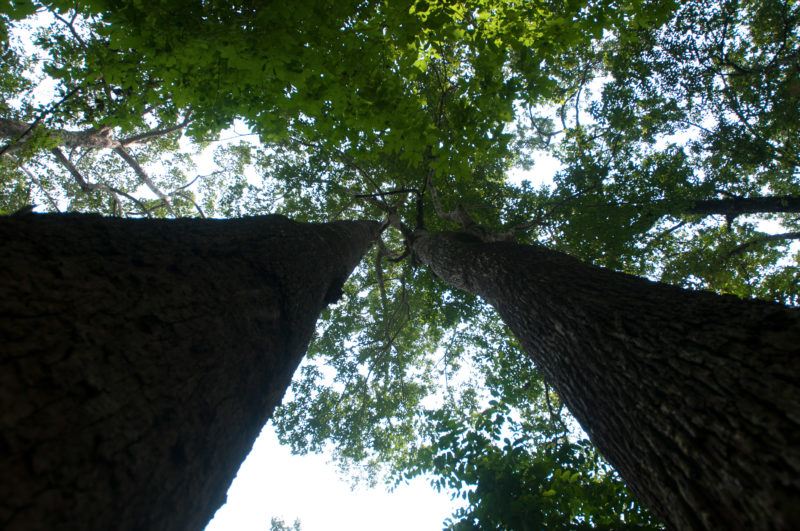Nigeria is said to have one of the highest deforestation rates in the world, with less than 10 percent of the country forested. Since 2010, the UN-REDD Programme has provided support for the country’s ambitious efforts at forest conservation, climate change mitigation and community development.

Cross River State, which has more than 50 percent of Nigeria’s remaining tropical high forests, is host to a Community Based REDD+ Programme (CBR+) that promotes forest management and biodiversity conservation, rural livelihoods improvement with focus on climate smart approaches, capacity building for partici-pation in climate change programmes including REDD+, and sustainable energy alternatives. To date, more than 300 households across 21 communities have benefited from the Programme, which targets women, men and youth. The outcomes and experiences from the CBR+ Programme feed into Nigeria’s national REDD+ process.
Working with civil society groups, the Cross River State CBR+ Programme is aimed at redefining participatory and local-level forest management and conservation, while simultaneously improving rural livelihoods. Through this programme, villagers have improved sustainable management of their community forest and lands by developing management plans and doing reforestation and enrichment planting, including of indigenous timber species and non-timber forest products. One example is bush mango which can yield, by some estimations, up to $10,000/hectare annually from sales of mature fruits. Improved processing of cassava and sustainable cultivation of cocoa are also enhancing productivity and increasing household income by at least 10 percent in some of the target communities.
“The CBR+ Programme provides a platform to en¬courage dialogue among different groups and to ensure community experiences are fed into the CRS REDD+ Strategy,” says Tony Atah, the stakeholder engagement specialist with the UN-REDD Programme in Nigeria. “Local communities have designed and implemented community-based initiatives to improve livelihoods, skills and land and forest management, providing insight on how REDD+ can appropriately respond to local circumstances to reduce carbon emission.”
“The Programme is helping us rehabilitate our mangrove forest and think carefully about sustaining its productivity,” says Chief Bassey Ekeng from Esierebum. “Our dependency on fishing and fuelwood from the mangroves means we need this forest standing if we are to survive, and through REDD+ activities we have developed a land and forest management plan, including practical steps to regenerate over five hectares of mangrove forest.”
“With CBR+, we now have semi-mechanised equipment for the very first time in our community. This allows the women to produce cassava flour at home, doing in 2 days what used to take a week. We are now able to sell our produce and make money for our families,” says Mrs. Martina Afor from Bokalum. “The women are also includ¬ed with men in training for improved cocoa production and sustainable harvesting of non-timber forest products like bush mango, and we have taken an active part in reviewing our community forest management plan. We feel involved and empowered, and our community is now giving us more recognition and support.”
In the Cross River village of Edondon, the CBR+ project has brought together a divided community for the first time. “We have learned that successful forest management will be better enforced when there is social cohesion, political will and productive livelihoods,” says Chief Barry Inyang. “With support from CBR+ and DEVCON, a local NGO that worked with us, we have developed a community forest management plan with bylaws, and we have started to regenerate degraded forest sites, improve livelihoods for women and also improve the value chain for cocoa, the major driver of forest loss.”
Atah added: “REDD+, especially through CBR+ in Cross River State provides useful lessons for good governance in natural resource management. The impacts are being felt, albeit slowly; and more communities are organising to be more involved in natural resource governance, particularly forest.”
Dr Moses Ama, National Coordinator, Nigeria REDD Plus Programme, said: “This tempo must be maintained through more synergies with other REDD+ interventions in Nigeria. The REDD+ programme truly provides the best platform to address climate change challenges considering that in it, we can speak to communities livelihood needs while addressing sustainable Forest management for which is the whole essence of the the REDD+ programme and adjudge the best option to address contemporary climate challenges.
“If we all agree that ‘Forest is the Lungs of the World’ then support must be given to the success of the REDD+ programme, particularly in CRS hosting 50% of the remaining Tropical Forest in the Nigeria – the most populated nation in Africa.”
The Nigeria Global Environment Facility (GEF) Small Grants Programme contributed 50% of the grant and operational fund to the CBR+, according to the National Coordinator, Ibironke Olubamise.
